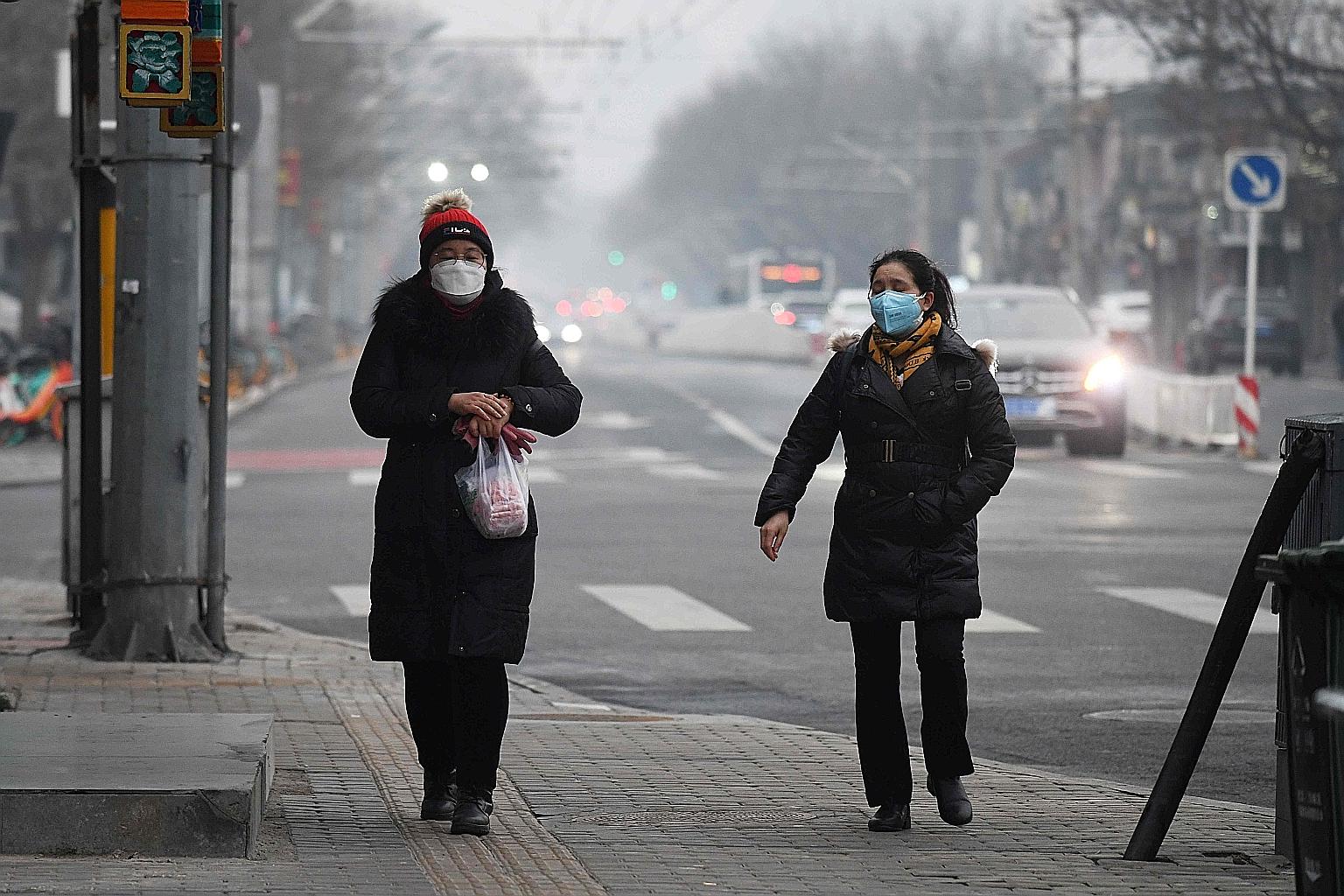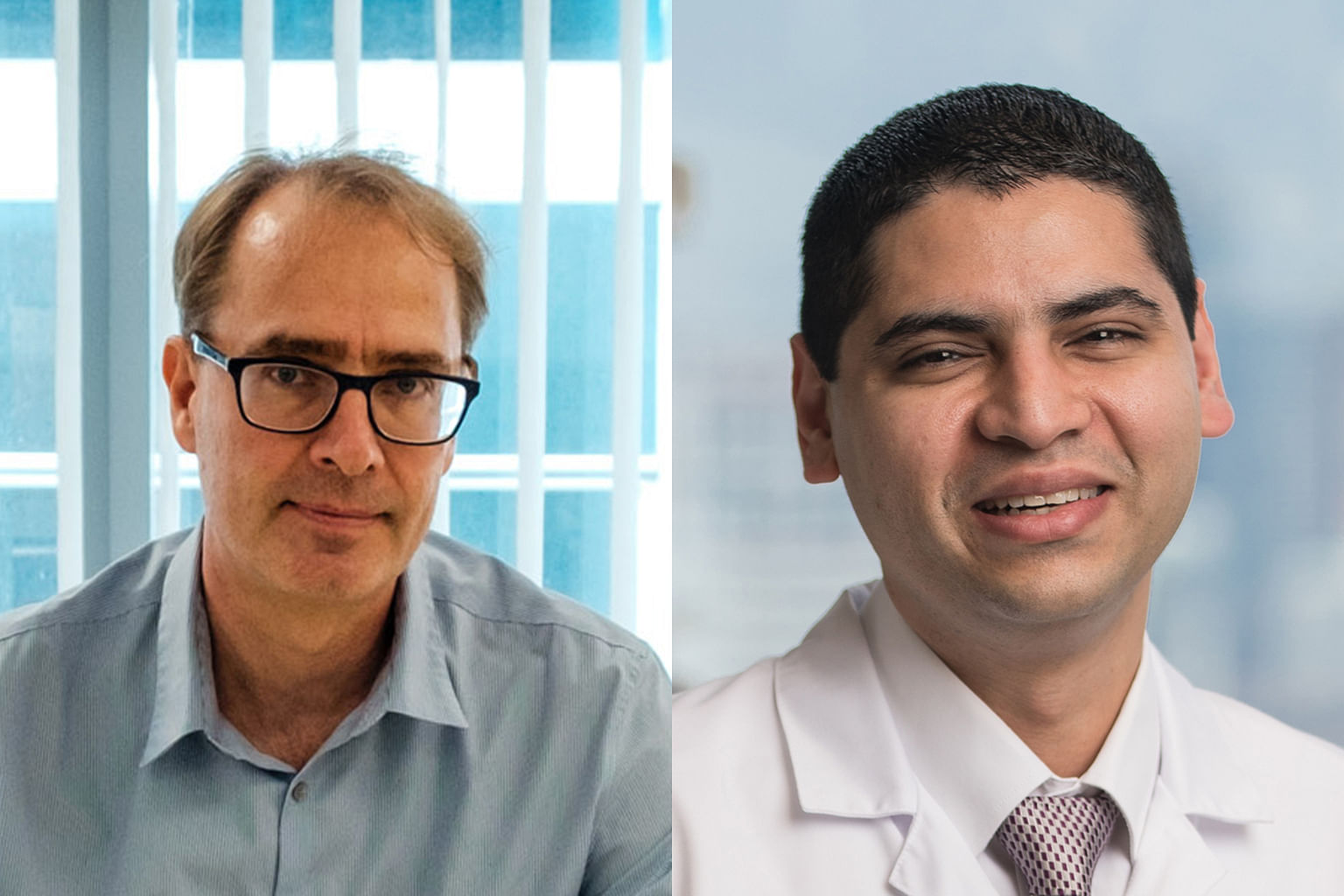NTU probes link between tiny air organisms and respiratory woes
Uni seeks to better understand how microorganisms in bad air may influence Covid-19 outcomes
Sign up now: Get ST's newsletters delivered to your inbox

A polluted February day in Beijing. NTU researchers have proposed a model that may explain how and why air pollution primes the airways for poorer Covid-19 outcomes.
PHOTO: AGENCE FRANCE-PRESSE
There is life all around us, and they can be found even in the air we breathe.
At least 725 different species of microorganisms, such as fungi, bacteria or plants, have been detected in the air in Singapore, a recent Nanyang Technological University (NTU) study has found, and people here breathe in between 100,000 and one million of these every day.
NTU researchers are taking the study forward by investigating if patients with respiratory diseases could be affected by the tiny living organisms they breathe in.
Professor Stephan Schuster, research director at NTU's Singapore Centre for Environmental Life Sciences Engineering, is working with Assistant Professor Sanjay Chotirmall from NTU's Lee Kong Chian School of Medicine to assess the air microbiomes in the homes of patients with chronic respiratory illnesses, and to follow their disease course.
This work is being done in collaboration with hospitals across Singapore through the Academic Respiratory Initiative for Pulmonary Health led by Lee Kong Chian School of Medicine, said Prof Chotirmall.
Such microorganisms in the air are very small, said Prof Schuster. Measuring between 0.5 and 10 microns, they are likely to reach deep inside the lung tissue.
"The immune system, however, prevents us from having infections from these microorganisms," he said.
While these microorganisms are too small to be trapped by nasal hair, cilia - tiny muscular, hair-like projections on cells lining the airways - can remove small particles via a liquid layer of mucus, he added.
This mechanism leads to a person coughing, thereby propelling mucus back out of the airways.
But the efficacy of this mechanism for airborne microorganisms is currently not well understood.
Problems may also arise when the individual has a lung disease, such as asthma or chronic obstructive pulmonary disease.
In such patients, these defences are compromised and they may become more susceptible to infection and inhaled pollutants, said Prof Chotirmall.
Scientists are still at a preliminary stage of understanding the true role of the air microbiome on the lung. But, theoretically, he said that the microorganisms, if they are viable and are inhaled at high enough concentrations, coupled with a patient's inability to clear them from the airways, could worsen the respiratory disease.
Specific to Covid-19, which is also a respiratory disease, the NTU researchers are also analysing available international epidemiological and clinical data, and coupling this with their earlier studies that had evaluated the air microbiomes in a number of countries and in settings of varying air quality.
This is done to better understand how precisely microbial communities from the air may influence the course and outcomes of Covid-19, they told The Straits Times.
Early research has shown that for 46 cities in 46 countries, air pollution is a key factor contributing to the outcomes.
The researchers have proposed a model that may explain how and why air pollution primes the airways for poorer Covid-19 outcomes, said Prof Schuster.

Professor Stephan Schuster (left) and Assistant Professor Sanjay Chotirmall are studying the ecosystem of microorganisms in the homes of patients with chronic respiratory illnesses, and following their disease course.
They are also looking at how changes in airborne microorganisms that characterise polluted air in particular regions affect disease outcomes.
However, the scientists say that while they have observed strong signals linking air quality to Covid-19 outcomes in patients, research is still ongoing and that it is too early to discuss the findings before the full results are published in the next four to six weeks.
Separately, the World Health Organisation had said on its website last week that air pollution is a serious health risk that kills about seven million people every year and is responsible for one third of all deaths from stroke, lung cancer and heart disease.
The global health agency noted that while efforts to control the spread of the coronavirus pandemic have reduced economic activity and led to temporary improvements in air quality in some parts of the world, environmental benefits may be reversed by a rapid expansion of polluting economic activities once the measures have ended.
It added: "Any short-term environmental benefits as a result of Covid-19 come at an unacceptable human and economic cost, and are no substitute for planned and sustained action on air quality and climate."


